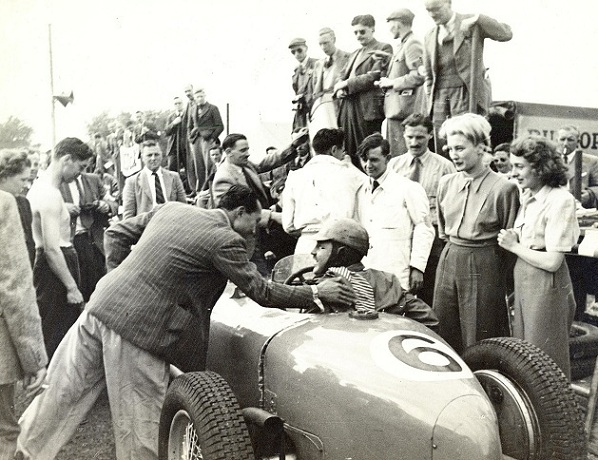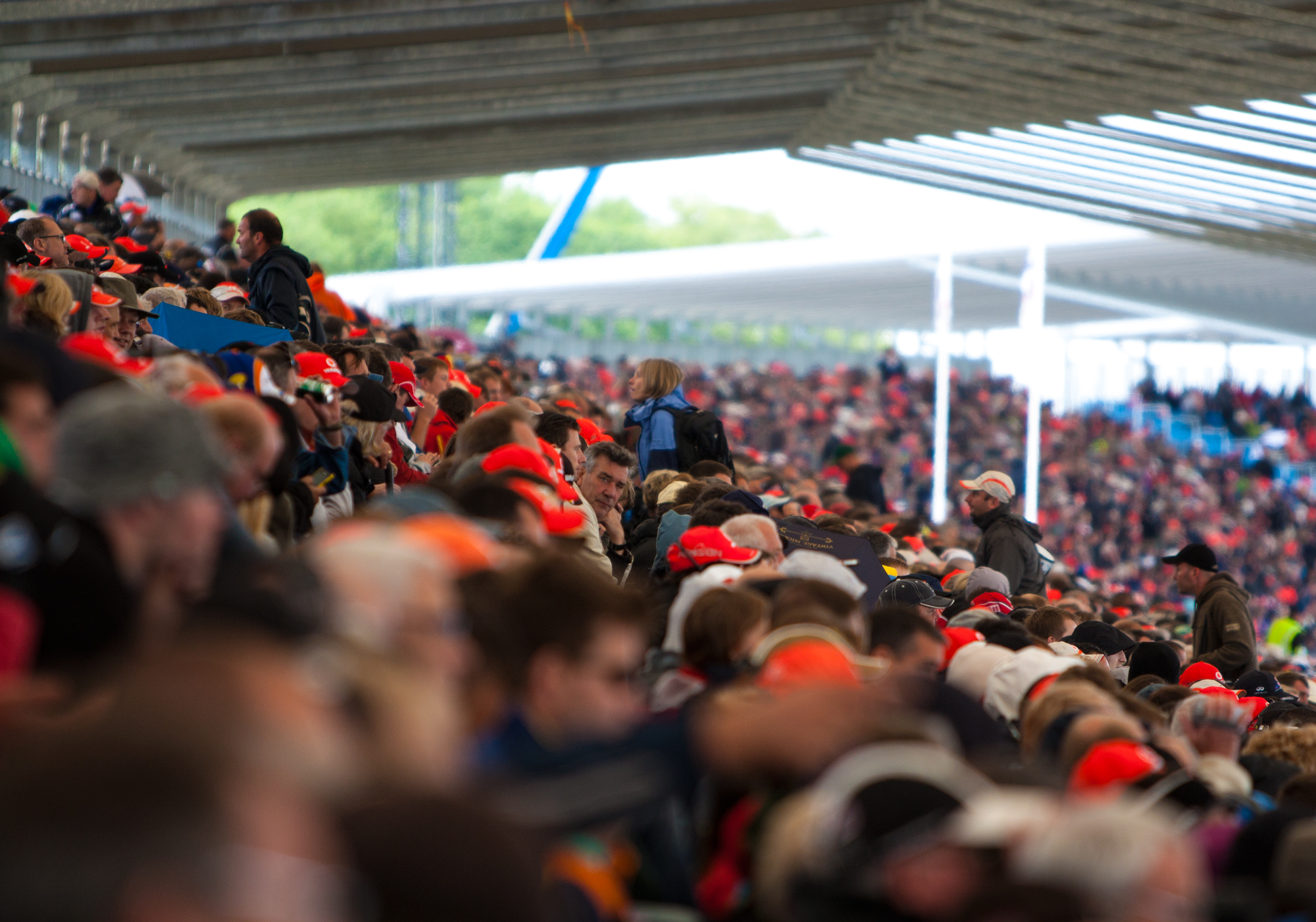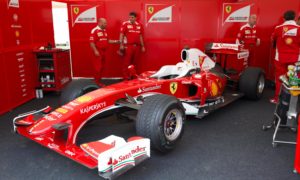Luck: when does it occur and when can it be applied to sport?
Since the flag fell in Melbourne, this word has dominated Formula One blogs and forums. The sole reason for the uproar appears to centre on the McLaren team and the fascinating dynamic which is developing between its two drivers – Lewis Hamilton and Jenson Button.
Prior to the start of the season, many predicted fireworks. Would Button get equal treatment in “Hamilton’s team†and, if so, would he be able to capitalise on his handling of the current specification of racing tyres to come out on top?
Either way, it is slightly surprising to see that the battles lines have been drawn so quickly, especially after only two rounds of the season.
Already message boards, including the one on this site, have been inundated with fans of both drivers locking horns over who is better – with the overwhelming feeling that Jenson Button was somewhat lucky to take victory in the Australian Grand Prix, while Lewis Hamilton was robbed of claiming at least a place on the podium due to his team’s decision to bring him in for a second time.
In some respects this is true: luck plays a major part in each and every Grand Prix and this one was no different. But, drivers are never simply “in the right place at the right timeâ€. There is often fine line between success and failure in Formula One and often this is down to the reaction to each driver when such an opportunity arises. Does he reach out and grasp it or does he simply let it pass him by?
Nevermore could such a description be justified than in the events which played out on Sunday.
It is true that Button relied on more than his superb opportunistic pit strategy to win the Australian Grand Prix. Firstly, his gamble might well have ended after only a few hundred yards, had he not wrestled the car out of the gravel trap into turn three. Secondly, without the retirement of Sebastian Vettel, the Briton would have had to settle for second place at best, with no answer to Red Bull’s speed.
Therefore, at first glance it would appear that, yes, Jenson was very fortunate to win in Albert Park. But broadening this logic also insinuates that Hamilton rode his luck on Sunday. What if Webber had taken him out at turn three, when the fiery Australian slid wide? What if Rosberg had failed to lift when Hamilton made his daring move down at turn eleven? What if his second collision with Webber had forced his retirement – meaning no points? These are all bogus statements to make, but all appear to contain a “so-called†element of luck.
Thus, the definition of luck can vary and its implementation differs throughout a whole range of circumstances.
The truth is that while Hamilton’s race performance was one of his finest, his team-mate’s drive was equally as enthralling.
Put simply: It takes more than your efforts on track to win a motor race. Whereas Hamilton stuck to team orders Button, who was struggling with his intermediate tyres in the race’s opening stages, choose to take control of the situation and roll the dice. On any other day it might not have worked and many would have pointed the finger at Button for not sticking to the original plan. But this time it paid off and the Briton rocketed up the order. Was this luck or was this sheer genius from Button?
Once Vettel departed the race, Button was always in control and his famed smooth driving style came to the fore. But, even then, as the race reached its closing stages, the reigning world champion took a gamble, which paid off.
By the time Hamilton and those around him had made their second pit stops, Button had a commanding lead and could have easily taken the safe option and pitted for fresh rubber, while still resuming in the lead. But the fact that he didn’t demonstrates that the man was in total control of the situation – in control of his own destiny. Unlike his team-mate, Button overruled his superiors and with this was able to maintain an untroubled voyage to the finish.
Why then should such a courageous decision be allowed pass by without any recognition? Why should it be simply put down to luck and why should Button’s tactics in terms of strategy be so incomparable to Hamilton’s on track pursuits? If Button had made the wrong call then he would have been made to “carry the canâ€, but the same would have applied to Hamilton if he had mistimed a possible overtaking manoeuvre and crashed out.
Of course, nothing can be taken away from Hamilton’s drive; but it is clear that the damage was done on Saturday when he failed to make it into the top ten shoot out. Again, the term luck’ can be used once more. Would Hamilton have been anywhere near the podium had the weather been perfect? Although there is no definite answer, it is highly likely that his task would have been much more difficult. (Does anyone notice a pattern here?)
It is far too early to be placing eggs into baskets in regards to who will lead McLaren’s charge. Although Hamilton may steal the headlines (good or bad), Button continues to work with his head down: he has successfully integrated within the team and has so far been able to take advantage of the favorable situations presented to him. This will not always be the case this season, and on other occasions Hamilton will be bestowed with an opportunity to make or break a particular race – if he is so lucky.
Ultimately fans of the Woking team would be best abandoning their efforts to foster a civil war and instead focus on the current state of play. Once again McLaren has failed to provide a front running car straight out of the box and this time the team has no real excuses. There were no titles at stake last season, and the rule changes for 2010 were not as revolutionary as in previous years. Although all is not lost for McLaren, it will take time for the team to get on top of the MP4-25’s various deficiencies and, as a result, the team will require both of its drivers to work together and at the best of their ability to limit the damage and claw their way forward.
Therefore, McLaren on the whole were very “lucky†to emerge from Australia without falling further behind in the championship. The team was “fortunate†that the weather conditions eradicated its car’s imperfections, that Alonso’s Ferrari spun at turn one and that Vettel was eliminated whilst comfortably in the lead. But, most of all, they were “blessed†to have a driver in Button who could buck the trend and formulate such a strategy from within the cockpit.
Hopefully, with a bit of “luckâ€, this will all blow over by the time Formula One reaches Malaysia.
Then again, such a thought isn’t likely is it?








